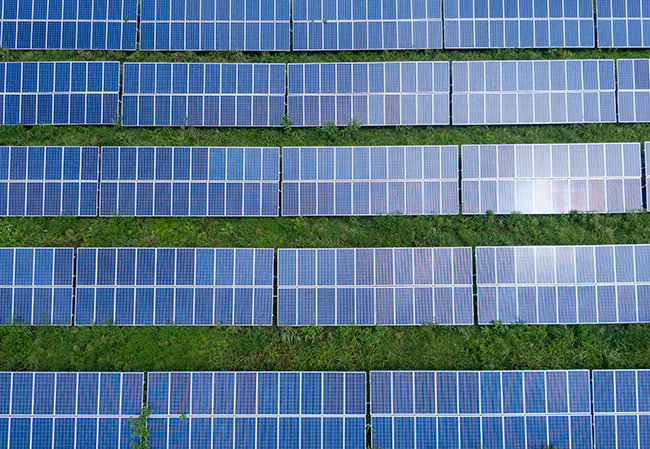Charlotte Energy Committee launches Solarize Charlotte
The Charlotte Energy Committee is excited to announce a plan to directly help folks take advantage of opportunities to go solar, join the clean energy revolution and lower their utility bills.
Long before financial opportunities were expanded by passage of the Bipartisan Infrastructure Law and the Inflation Reduction Act in late 2022, the Charlotte Energy Committee was busy laying plans for a Solarize Charlotte program. Last February, chair Rebecca Foster reached out to her alma mater, Williams College, to find a summer intern who could work with her to develop the idea. Kitt Urdang and part-time intern Maara Ensmann from Oberlin College, the alma mater of Charlotte Energy Committee member Deirdre Holmes, did background research and created a roadmap for the program.
The purpose of solarize campaigns is to reduce the cost of installing solar panels by partnering with local solar installers who offer discounts. Solarize initiatives build momentum through public outreach and education and help residents navigate going solar by vetting companies. The solarize approach has been successfully undertaken in many Vermont towns and cities including Norwich, Windsor and Hartland.

The Charlotte Energy Committee takes its role in helping our community respond to the climate change crisis seriously. Reaching the renewable energy production goals as set in the Town Plan is essential. Charlotte needs to transition to 90 percent renewable energy by 2050, as informed by Vermont’s statewide energy goals and our town plan. The town has already made great progress in this area, with 171 solar sites that produce 5,758 MWh of energy. In order for Charlotte to reach the 90 percent renewable goal by 2050, around 30 homes per year must go solar.
A megawatt hour (MWh) equals 1,000 kilowatts of electricity generated per hour of sunshine and is used to measure electric output. A typical Charlotte household might use between 800 and 1,200 kilowatt-hours per month.
Solarize Charlotte also helps provide savings for homeowners. Thanks to the Inflation Reduction Act, the federal tax credit was raised this year from 25 percent to 30 percent on installed solar arrays, and further incentives are offered by Green Mountain Power and Efficiency Vermont. Through Vermont’s net metering law, solar significantly lowers electricity bills for utility customers and improves grid reliability through distributed electric generation. As the Vermont economy moves away from increasingly expensive fossil fuels and toward electricity-based power, we don’t want Charlotters to be left behind.
The two solar providers that the Charlotte Energy Committee chose for Solarize Charlotte — DC Energy Innovations and Green Mountain Solar — are both professional, responsive, friendly, and agreed to a 2 percent discount for 10 homes, 4 percent for 20 homes, and 6 percent for 30 homes. Having two providers allows residents to “shop” for the best fit for their situation, doesn’t place a massive burden on a single provider and avoids the town picking a favorite. The Charlotte Energy Committee also communicated with local banks and the Vermont State Employees Credit Union about financing options.
Solarize campaigns require on-the-ground outreach and education, hosting an informational kickoff meeting and providing consistent support to residents throughout the process, all of which involve time beyond what Charlotte Energy Committee volunteers can provide. After the selectboard’s approval on Feb. 13, the Charlotte Energy Committee is now seeking to hire a short-term, part-time consultant within its own budget.
The community consultant will:
- Help advance the project.
- Tweak, produce and distribute campaign outreach materials throughout the community online, in print and in person.
- Organize and host a campaign kickoff event on Earth Day (April 22) with Charlotte Energy Committee members, solar providers and the Vermont State Employees Credit Union.
- Follow up with interested households and facilitate communication between Charlotters, the solar providers and the Vermont State Employees Credit Union.
- Make sure that projects move along expeditiously.
- Write a final report assessing strengths and weaknesses of the program and making suggestions for subsequent years.
- The project is expected to last for six-eight months. The successful candidate for the position will work with and under the direction of energy committee members for a total of 80 hours at a rate of $22 an hour.
Good people, communication, and organizational skills and familiarity with and excitement about residential solar are required. Low- to moderate-income Vermonters are strongly encouraged to apply.
Please contact the energy committee with questions and interest through the “contact us” tab on the energy committee website.
(Rebecca Foster is chair of the Charlotte Energy Committee and Mike Yantachka is a member.)

